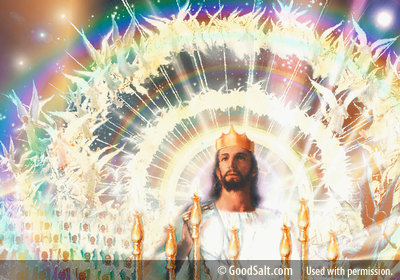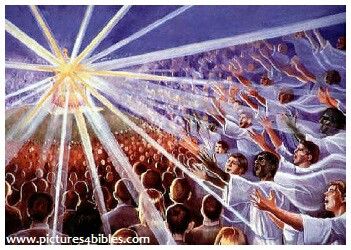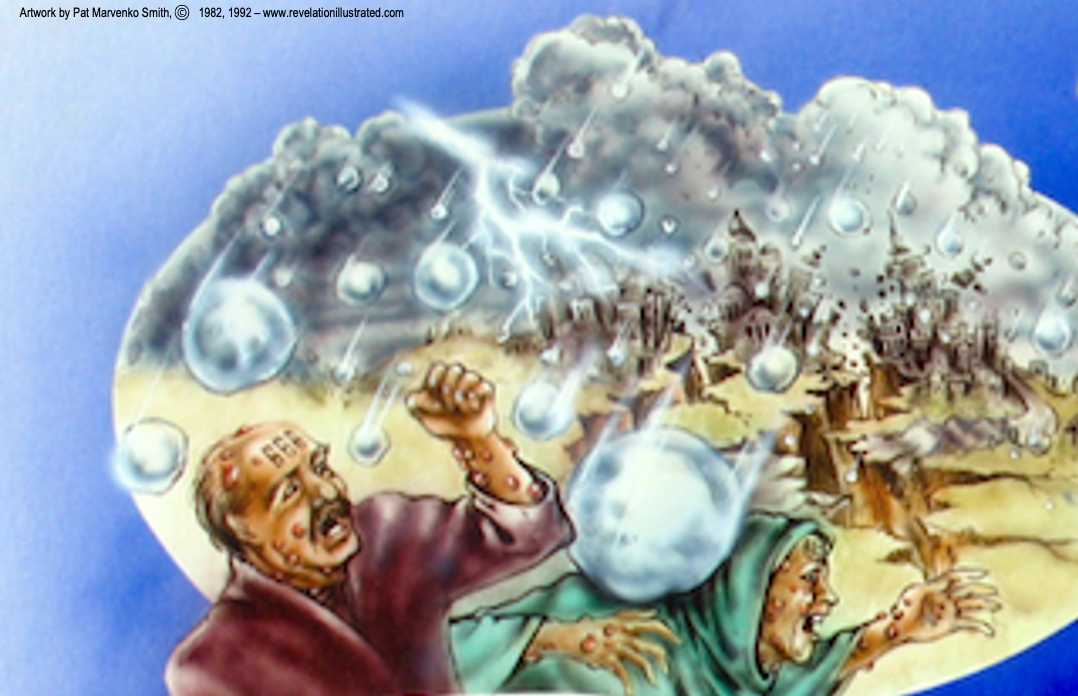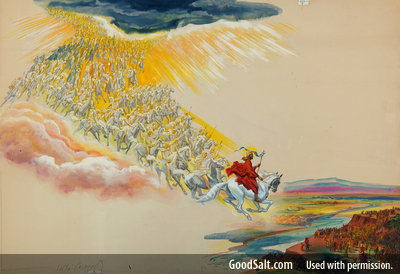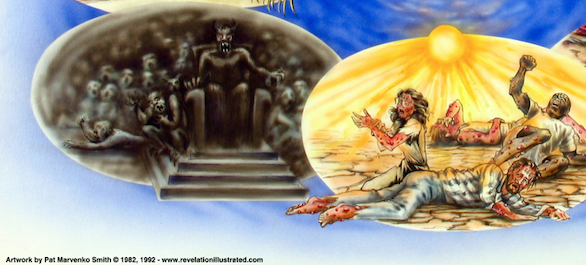“1 Then one of the seven angels who had the seven bowls came and talked with me, saying to me, ‘Come, I will show you the judgment of the great harlot who sits on many waters.’” Revelation 17:1
Swindoll writes, “In 1844 Karl Marx famously described religion as ‘opium of the people.’” 1 Marx viewed “all religion as man-made – a crutch that helped people escape the hardships of this world system by resting their hopes, confidence, and comfort on something other than the heartless world around them. The cure for humanity’s need for religion, Marx argued, was to overcome the conditions of oppression and inequality that had forced people to seek psychological succor from outside themselves. Marx’s solution? Communism – an atheistic system that invoked as much religious zeal in the twentieth century as any of the man-made ‘religious’ systems Marx had criticized…
“Marx was right that all man-made religion is useless – merely a deceptive psychological crutch to distract people from the real conditions of the world. However, his unforgivable errors were to lump Christianity into the same category as a man-made religion and to propose atheistic communism to replace it.” 2
In Genesis 11:1-9, God gives us a picture of man-made religion that provides us with a heavenly perspective on the topic. After the global flood and Noah’s death, we travel to the land of Shinar which is the birthplace of man-made religion. Instead of the descendants of Noah obeying God’s command to “Be fruitful and multiply, and fill the earth” (Genesis 9:1), they moved east away from God to the land of Shinar. The people made a declaration of independence from God Himself, saying, “Come, let us build ourselves a city, and a tower whose top is in the heavens; let us make a name for ourselves, lest we be scattered abroad over the face of the whole earth.” (Genesis 11:4). To avoid spreading over the face of the whole earth as God commanded, the people wanted to make a name for themselves by building a city and a tower that reached to the heavens.
The ancient Jewish historian, Josephus, observes that the people built the tower out of “burnt brick, cemented together with mortar, made of bitumen, that it might not be liable to admit water.” 3 Swindoll concludes that the people must have disbelieved God’s promise to never flood the whole world again (Genesis 9:11-17), so they made their tower waterproof to keep from drowning. Plus, the entire building project was focused on constructing a physical way to gain access to heaven – something only God could freely grant to them. 4 From this we learn three fundamentals of man-made religion:
- “Rejection of God’s promises – faithlessness.
- Rebellion against God’s commands – disobedience.
- Refusal of God’s grace – legalism.” 5
God judged these people who were united by one language by dividing them into different languages so they would be “scattered … abroad from there over the face of all the earth” (Genesis 11:8-9) which is what the Lord originally commanded them to do (Genesis 1:28; 9:1). So, the city was called “Babel,” which means confused (Genesis 11:9a).
Walvoord writes, “Later the name was applied to the city of Babylon which itself has a long history dating back to as early as 3,000 years before Christ. One of its famous rulers was Hammurabi (1728-1686 B.C.). After a period of decline Babylon again rose to great heights under Nebuchadnezzar about 600 years before Christ. Nebuchadnezzar’s reign (605-562 B.C.) and the subsequent history of Babylon is the background of the Book of Daniel.
“Babylon was important not only politically but also religiously. Nimrod… had a wife known as Semiramis who founded the secret religious rites of the Babylonian mysteries, according to accounts outside the Bible. Semiramis had a son with an alleged miraculous conception who was given the name Tammuz and in effect was a false fulfillment of the promise of the seed of the woman given to Eve (Genesis 3:15).
“Various religious practices were observed in connection with this false Babylonian religion, including recognition of the mother and child as God and of creating an order of virgins who became religious prostitutes. Tammuz, according to tradition, was killed by a wild animal and then restored to life, a satanic anticipation and counterfeit of Christ’s resurrection. Scripture condemns this false religion repeatedly (Jeremiah 7:18; 44:17-19, 25; Ezekiel 8:14). The worship of Baal is related to the worship of Tammuz.
“After the Persians took over Babylon in 539 B.C., they discouraged the continuation of the mystery religions of Babylon. Subsequently the Babylonian cultists moved to Pergamum (or Pergamos) where one of the seven churches of Asia Minor was located (cf. Revelation 2:12-17). Crowns in the shape of a fish head were worn by the chief priests of the Babylonian cult to honor the fish god. The crowns bore the words ‘Keeper of the Bridge,’ symbolic of the ‘bridge’ between man and Satan. This handle was adopted by the Roman emperors, who used the Latin title Pontifex Maximus, which means ‘Major Keeper of the Bridge.’ And the same title was later used by the bishop of Rome. The pope today is often called the pontiff, which comes from pontifex. When the teachers of the Babylonian mystery religions later moved from Pergamum to Rome, they were influential in paganizing Christianity and were the source of many so-called religious rites which have crept into ritualistic churches. Babylon then is the symbol of apostasy and blasphemous substitution of idol-worship for the worship of God in Christ.” 9
With this background in mind, let’s return to our study of the book of Revelation. Revelation 16 recorded the seven bowl judgments leading to the battle at Armageddon at the end of the Tribulation. But before Armageddon is described in detail and the Second Coming of Jesus Christ takes place, one final event must be addressed – the destruction of Babylon the Great (Revelation 17-18). In the book of Revelation, one of out of every ten verses deals with Babylon. Two whole chapters address this city and its demise. It it clear that Babylon holds an important place in God’s final plan for the ages. 7
In the final climatic section of the book of Revelation (17:1-22:5), two cities will be contrasted, both being depicted as women. The first is evil and temporary: the city of Rome is referred to as “the great harlot” (17:1) or “MYSTERY BABYLON” (17:5). The second city is holy and eternal: the New Jerusalem which is described as “the bride, the Lamb’s wife” (21:9). For John’s original readers, seeing the judgment of the corrupt city that ruled over them as well as the splendor of the city they would one day experience as home would motivate them to remain faithful to God amid the difficult trials they would face. 8
Much has been written about the identity of Babylon. Some believe it refers to the literal city of Babylon on the Euphrates River in modern Iraq that will be rebuilt in the last days. 9 But this is not possible because God said Babylon would become like Sodom and Gomorrah due to the conquest of the Medes (in 539 BC) and become an everlasting desolation never to be inhabited again (Isaiah 13:17-20; Jeremiah 25:11). 10
I understand “Babylon” in the book of Revelation to refer to the city of Rome (17:1-18:21; cf. 14:8; 16:19). That “Babylon” is to be taken symbolically is the use of the qualifying word “mystery” (Revelation 17:5). Compare this with Revelation 11:8 where Jerusalem is referred to as “the great city which spiritually is called Sodom and Egypt, where also our Lord was crucified.” Likewise, since the apostle Peter was writing from Rome, he refers to the city using the common code name “Babylon” in I Peter 5:13. 11
Since the apostle John wrote Revelation while a Roman prisoner on the island of Patmos, he could not make any derogatory remarks about Rome in his writings, so he used the name “Babylon,” emphasizing that it was a code name by referring to it as “Mystery Babylon” (Revelation 17:5). 12
That John had Rome in mind when he wrote about “Babylon” is his reference to it as the city of “seven mountains” or hills 13 (Revelation 17:9). In the context of the first century, this could only refer to Rome which was known as “the city of the seven hills.” 14
Beginning in Chapter 17, John receives an invitation from one of the seven angels of the bowl judgments. “Then one of the seven angels who had the seven bowls came and talked with me, saying to me, ‘Come, I will show you the judgment of the great harlot who sits on many waters.” Revelation 17:1 The apostle John is invited by “one of the seven angels” that executed the bowl judgments, to “come” and see “the judgment of the great harlot who sits on many waters.” As discussed earlier, this “great harlot” refers to “Babylon” (16:19), another name for the city of Rome. When John wrote the book of Revelation, the Roman Empire ruled the world, and the great harlot represents the capital city of that empire – Rome. This is confirmed in Revelation 17:18 which says “the woman whom you saw is that great city [Rome] which reigns [present tense] over the kings of the earth” at the time John wrote this book.
This great harlot “sits on many waters” which the angel interprets in 17:15 to mean “peoples, multitudes, nations, and tongues” (17:1b; cf. 17:15). The fact that she “sits” suggests enthronement. 15 This great harlot will lead the world in the pursuit of false, man-made religion. Rome is a lot like Hollywood – it represents both a city and an industry or lifestyle that has impacted the whole world throughout history with its evil influence, but the peak of its influence will be during the Tribulation period (cf. 17:16; 18:11-19). 15
Next the angel says of the great harlot, “with whom the kings of the earth committed fornication, and the inhabitants of the earth were made drunk with the wine of her fornication.” (Revelation 17:2). Because of Rome’s affluence and beauty, “the kings of the earth committed” spiritual “fornication” or immorality with Rome by adopting her sensual, materialistic, and idolatrous lifestyle (17:2a). From the Lord’s viewpoint, Rome’s influence was tragic, causing “the inhabitants of the earth” to be “made drunk” or controlled “with the wine of her fornication.” Rome’spagan and idolatrous false religion caused the world to sink deeply into its decadence and unbiblical views of a relationship with God. 17
“This will be a satanic spiritual ‘high’ like nothing Karl Marx could have imagined when he called man-made religion ‘the opium of the people.’ For this reason, judgment of demonic false religion will mean judgment of its devoted practitioners.” 18
One of the primary reasons the Lord will have this great harlot wiped out by the ten kings near the end of the Tribulation is because she had insistently “corrupted the earth” (19:2) in a variety of ways. 19
Like the first man-made religion that tried to access heaven through self-reliance and human effort (Genesis 11:1-9), all man-made religions continue to attempt to do the same today, though unsuccessfully like their predecessor. The culmination of such attempts will take place in the future Tribulation when “the great harlot” (Rome) will mislead the entire world away from the true God with its decadent false religion.
Considering man-made religions today, I must ask you, “What are you trusting to get you to heaven?” 20 Some people are trusting their works to get them to heaven. Non-Christian religions comprise this group such as Buddhism, Confucianism, Hinduism, Islam, Judaism, Sikhism, Taoism, and Zoroastrianism. They believe that through human effort and/or self-reliance they can access heaven. Others trust in Christ plus their works to get them to heaven. This group consists of those who front-load the gospel with works such as Roman Catholics, Jehovah Witnesses, Mormons, and Seventh Day Adventists. It also includes those who back-load the gospel with works such as Calvinistic or Reformed churches. Both groups say faith in Christ is necessary, but such faith must be accompanied by works either at the beginning of your profession of faith or at the end of your Christian life to have eternal life.
However, some people are trusting Christ alone to get them to heaven. They believe Jesus’ promise when He said, “He who believes in Me has everlasting life.” (John 6:47). This is biblical Christianity, not man-made religion.Christ never said,“He who does good works has everlasting life.” Nor did Jesus say, “He who believes in Me and produces good works has everlasting life.” Christ did all the work when He died in our place on the cross for all our sins and rose from the dead (John 19:30; I Corinthians 15:3-6). All Jesus asks of us is to believe or trust in Him alone for His gift of eternal life.
When a person trusts his works to get him to heaven, he is telling God that His Son’s death was unnecessary. If I can trust my works alone to get me to heaven, then there was no need for Jesus Christ to die on a cross for my sins. In other words, Jesus failed to pay for my sins, so I must pay for my own sins.
When a person trusts Christ plus his works to get him to heaven, he is telling God that His Son’s death was disappointing. That is, Jesus died for some of my sins, but I must pay for the rest of my sins. Both responses are saying that Jesus Christ did not finish paying the penalty for all my sins so I must pay for some or all my sins.
But when a person trusts Christ alone to get him to heaven, he is telling God that His Son’s death was sufficient. It was enough. When Jesus was dying on the cross, He shouted, “It is finished!” (John 19:30). The Greek word that is translated “finished” is tetelestai. Receipts in New Testament times were stamped with this word which meant that the debt had been paid in full.
All people have sinned against God with their thoughts, words, and actions (Romans 3:23) and deserve to be separated from Him forever (Romans 6:23; Revelation 20:15). But God so loved the world that He gave His only perfect Son, Jesus Christ, to take the punishment for our sin when He was crucified in our place on the cross (John 3:16; Romans 5:8) and rose from the dead, proving He is God and had finished the work of paying our sin debt in full (Romans 1:3-4; I Corinthians 15:1-8; I John 2:2).
No amount of our good works can change the fact that we are sinners before a holy God (Isaiah 64:6; Romans 3:1-20, 23; 4:5; Galatians 2:16). Christ did not make a down payment for our sin when He died on the cross so that we must pay the remainder of our sin debt to God. God does not accept us based on our good life, our keeping of His commandments, our religion, our prayers, our self-discipline, our knowledge, our water baptism, or the sacraments we have taken. We are accepted by God based on the full payment for our sin debt to God when Jesus Christ died and rose again on our behalf. God was completely and forever satisfied with Jesus’ full payment for our sin. The verb tetelestai is in the perfect tense. This means Christ made the full payment for our sin debt when He died on the cross and it remains paid in full to the present.
When we communicate the gospel with non-Christians, we must be clear that all people have sinned against God and deserve to die forever in the lake of fire (Romans 3:23; 6:23; Revelation 20:15). No amount of our good thoughts, words, or actions can change the fact that we are sinners before a holy God (Isaiah 64:6). Because Jesus finished paying the penalty for our sins when He died in our place, that means we do not have to work for our salvation (Romans 4:5; Ephesians 2:8-9). All God asks of us is to believe in Jesus and His finished work on the cross as sufficient payment for our sins (John 3:14-15; 19:30). When we do, He gives us everlasting life and forgives all our sins (John 3:16; Acts 10:43; Colossians 2:13-14). And then we can have the assurance that “It is finished!” Our sin debt is paid in full.
Will you believe or trust in Jesus alone to do for you what you could never do on your own? He is waiting for you to come to Him in faith just as you are and then He will forgive all your sins and give you life that never ends (Acts 10:43; John 3:15-16; 11:25-26).
Prayer: Lord God, some of us have been entrenched in man-made religion trying to gain access to heaven through our own efforts and self-reliance. Thank You for exposing us to the origin of this deceptive religion which leads people away from You. Thank You for sending the Lord Jesus Christ to earth to die in our place for all our sins and rise from the dead. Thank You that Jesus is alive today to give us eternal life and forgive all our sins the moment we believe in Him alone. Please open the eyes and hearts of those blinded by man-made religion so they may see their need for our great God and Savior, Jesus Christ. Persuade them to believe in Christ alone to give them eternal life and a future home in heaven so they can help others find the same freedom in Christ. In Jesus’ mighty name, we pray. Amen.
ENDNOTES:
1. Charles R. Swindoll, Insights on Revelation (Swindoll’s Living Insights New Testament Commentary Book 15, Tyndale House Publishers, Inc., 2014 Kindle Edition), pg. 308 cites Karl Marx, “Zur Kritik der Hegelschen Rechts-Philosophie,” Deutsch-Franzosische Jahrbucher 1 (1844): 72.
2. Swindoll, pg. 308.
3. Ibid., pg. 309 cites Josephus, Antiquities of the Jews, 1.116.
4. Ibid.
5. Ibid.
6. John F. Walvoord, The Bible Knowledge Commentary Epistles and Prophecy, Editors John F. Walvoord and Roy B. Zuck (David C. Cook, 2018 Kindle Edition), locations 6075 to 6097.
7. Mark Hitchcock, The End: A Complete Overview of Bible Prophecy and the End of Days (Carol Stream, IL: Tyndale House Publishers, Inc., 2012 Kindle Edition), pg. 361.
8. Bob Vacendak; Robert Wilkin; J. Bond; Gary Derickson; Brad Doskocil; Zane Hodges; Dwight Hunt; Shawn Leach, The Grace New Testament Commentary: Revised Edition (Grace Evangelical Society, Kindle Edition, 2019), pg. 1562.
9. Hitchcock, pp. 362-366; Charles H. Dyer, The Rise of Babylon: Sign of the End Times (Carol Stream, IL: Tyndale, 1991), pg. 182; Henry M. Morris, Revelation Record: A Scientific and Devotional Commentary on the Prophetic Book of the End Times (Carol Stream, IL: Tyndale, 1983), pp. 348-349; J. Vernon McGee, Thru the Bible, Vol. 5 (Nashville: Thomas Nelson, 1983), 1, 039.
10. Dr. David R. Reagan’s article, “Mystery Babylon” at www.christinprophecy.org.
11. Gary Derickson; Robert Wilkin; J. Bond; Brad Doskocil; Zane Hodges; Dwight Hunt; Shawn Leach; Bob Vacendak, The Grace New Testament Commentary: Revised Edition (Grace Evangelical Society, Kindle Edition, 2019), pp. 1370, 1400; cf. Archibald Thomas Robertson, A. T. Robertson’s Word Pictures in the New Testament [with Bible and Strong’s Numbers Added!], 6 Volumes (E4 Group, 2014 Kindle Edition), Kindle Location 223503.
12. Reagan’s “Mystery Babylon.”
13. The Greek word for “mountains” is orē which can also mean “hills” – see Walter Bauer, A Greek-English Lexicon of the New Testament and Other Early Christian Literature: Third Edition (BDAG) revised and edited by Frederick William Danker (Chicago: University of Chicago Press, 2000 Kindle Edition), pg. 724.
14. Reagan’s “Mystery Babylon”; cf. Tony Evans, CSB Bibles by Holman, The Tony Evans Study Commentary (B & H Publishing Group, Kindle Edition 2019), pg. 2410.
15. Constable, pg. 183 cites David E. Aune, Revelation 17—22, Word Biblical Commentary series (Nashville: Thomas Nelson, 1998), pg. 930.
16. Vacendak, pg. 1563.
17. Ibid.
18. Swindoll, pg. 313.
19. Vacendak, pg. 1563.
20. Adapted from EvanTell’s 3-circle illustration.

